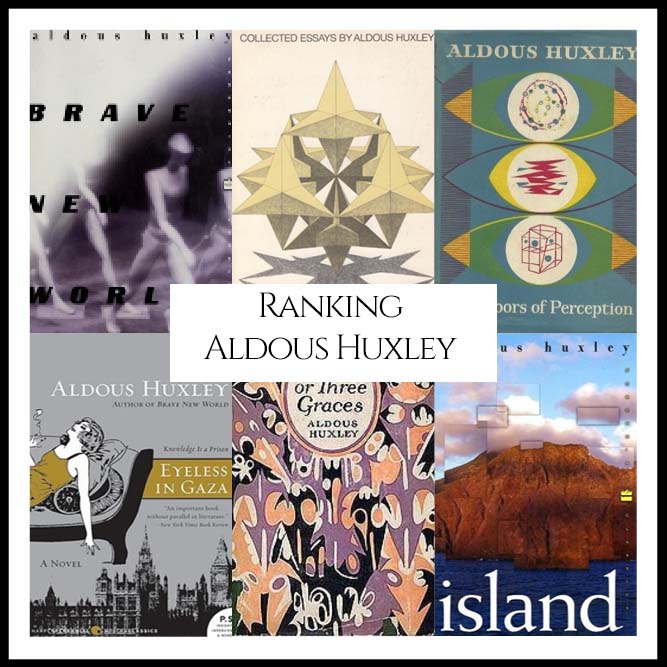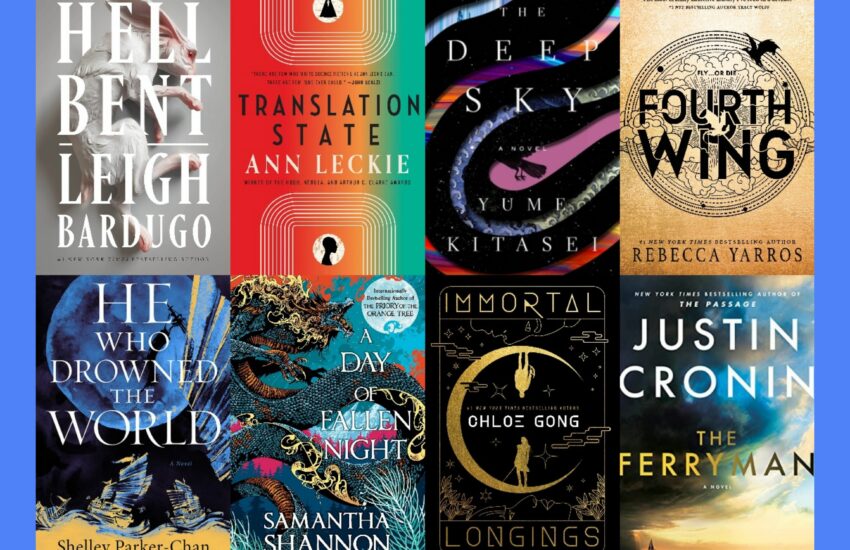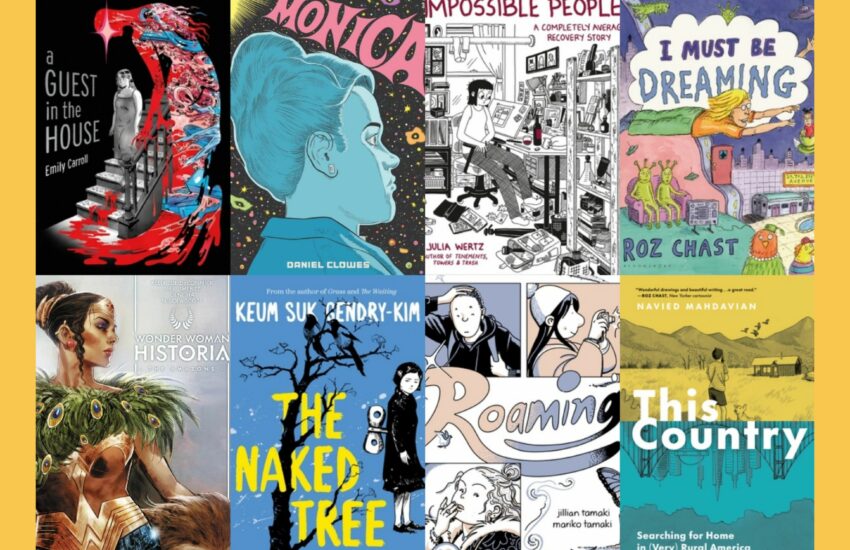Ranking Author Aldous Huxley’s Best Books (A Bibliography Countdown)
“What are Aldous Huxley’s Best Books?” We looked at all of Huxley’s authored bibliography and ranked them against one another to answer that very question!
We took all of the books written by Aldous Huxley and looked at their Goodreads, Amazon, and LibraryThing scores, ranking them against one another to see which books came out on top. The books are ranked in our list below based on which titles have the highest overall score between all 3 review sites in comparison with all of the other books by the same author. The process isn’t super scientific and in reality, most books aren’t “better” than other books as much as they are just different. That being said, we do enjoy seeing where our favorites landed, and if you aren’t familiar with the author at all, the rankings can help you see what books might be best to start with.
The full ranking chart is also included below the countdown on the bottom of the page.
Happy Scrolling!
The Top Book’s Of Aldous Huxley
55 ) The Burning Wheel
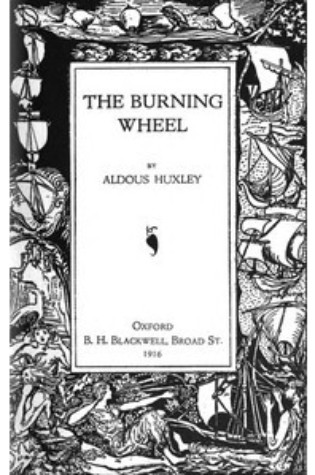 Review Website Ranks:
Review Website Ranks:
- Goodreads: 53
- Amazon: 47
- LibraryThing: 48
Though Aldous Huxley is primarily remembered for his novels, and to a lesser extent his essays, he began his writing career as a poet. While a student at Balliol College at Oxford, having been exempted from military service due to extremely poor eyesight, he was involved in several student poetry magazines. In September 1916 his first book of poetry, “The Burning Wheel”, appeared.
54 ) Beyond the Mexique Bay: A Traveller’s Journey
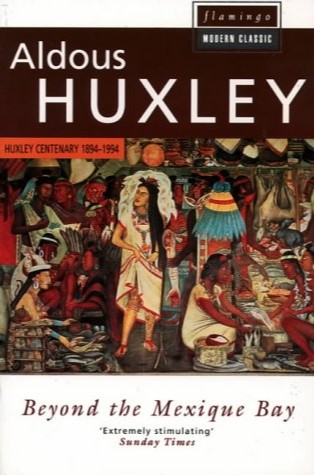 Review Website Ranks:
Review Website Ranks:
- Goodreads: 50
- Amazon: 40
- LibraryThing: 46
Beyond the Mexique Bay is a travel book by Aldous Huxley, first published in 1934. In it, he describes his experiences traveling through the Caribbean to Guatemala & southern Mexico in 1933.
53 ) Antic Hay
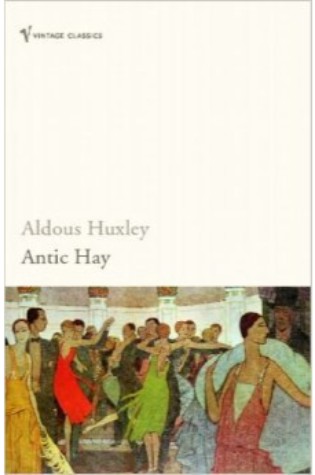 Review Website Ranks:
Review Website Ranks:
- Goodreads: 48
- Amazon: 40
- LibraryThing: 44
Antic Hay is one of Aldous Huxley’s earlier novels, and like them is primarily a novel of ideas involving conversations that disclose viewpoints rather than establish characters; its polemical theme unfolds against the backdrop of London’s post-war nihilistic Bohemia. This is Huxley at his biting, brilliant best, a novel, loud with derisive laughter, which satirically scoffs at all conventional morality and at stuffy people everywhere, a novel that’s always charged with excitement.
52 ) Crome Yellow
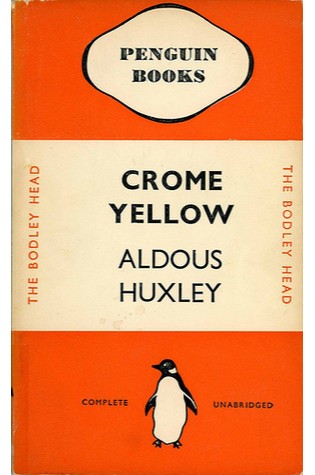 Review Website Ranks:
Review Website Ranks:
- Goodreads: 49
- Amazon: 36
- LibraryThing: 43
On vacation from school, Denis goes to stay at Crome, an English country house inhabited by several of Huxley’s most outlandish characters–from Mr. Barbecue-Smith, who writes 1,500 publishable words an hour by “getting in touch” with his “subconscious,” to Henry Wimbush, who is obsessed with writing the definitive “History of Crome.” Denis’s stay proves to be a disaster amid his weak attempts to attract the girl of his dreams and the ridicule he endures regarding his plan to write a novel about love and art. Lambasting the post-Victorian standards of morality, Crome Yellow is a witty masterpiece that, in F. Scott Fitzgerald’s words, “is too ironic to be called satire and too scornful to be called irony.”
51 ) Mortal Coils
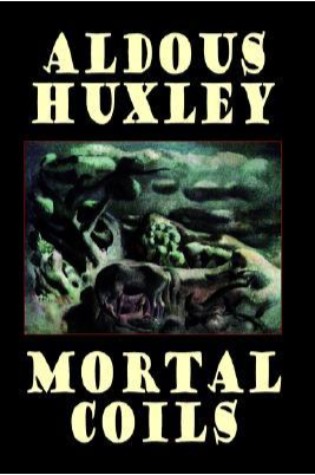 Review Website Ranks:
Review Website Ranks:
- Goodreads: 47
- Amazon: 40
- LibraryThing: 38
50 ) Jacob’s Hands: A Fable
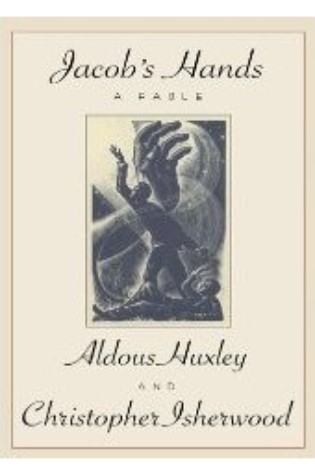 Review Website Ranks:
Review Website Ranks:
- Goodreads: 44
- Amazon: 38
- LibraryThing: 42
Jacob Ericson is a shy, enigmatic, and somewhat inept ranch hand who works for crotchety Professor Carter and his crippled daughter, Sharon, on a ranch in California’s Mojave Desert in the 1920s. One day he learns that his hands possess the mysterious gift of healing, a gift he uses to cure animals (whom he adores). Sharon (whom he also adores) then persuades him to heal her. When he successfully cures Sharon, his gift is quickly exploited and the boundaries of his charm and naivete begin to stretch. First he offers his healing powers for free at a church in Los Angeles – where Jacob has gone after Sharon, who fled her father and the ranch to pursue her dreams of stardom. Jacob and Sharon cross paths when they work for the same pair of exploitative showmen. Jacob stays with the seedy stage show only because Sharon is close by. It is when Jacob’s gift is recruited to heal Earl Medwin, an eccentric, ailing young millionaire, that the love and security for which he has worked so hard begin to collapse.
49 ) The Cicadas and Other Poems
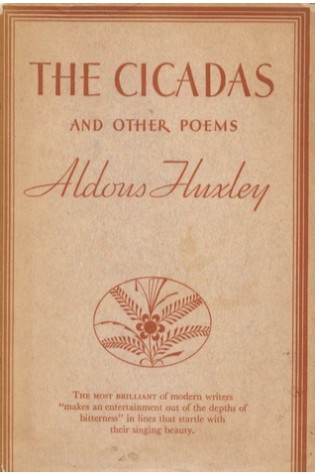 Review Website Ranks:
Review Website Ranks:
- Goodreads: 22
- Amazon: 47
- LibraryThing: 50
Aldous Huxley’s gleaming satire, his mockery of the human species, he here translates into images and phrases that startle and delight. Rebecca West says “This is quite beautiful verse, that not the most academic defender of the traditions of English poetry could defame. A great many of the lines sing themselves into the memory at a first reading; several of the poems build up such a unity of sound that one is able to think of them, apart from their thought, as a single shapely object like a beautiful vase.” Huxley’s last collection of poetry. Of the thirty poems here, five had already appeared in his earlier 1925 novel Those Barren Leaves.
48 ) Brief Candles
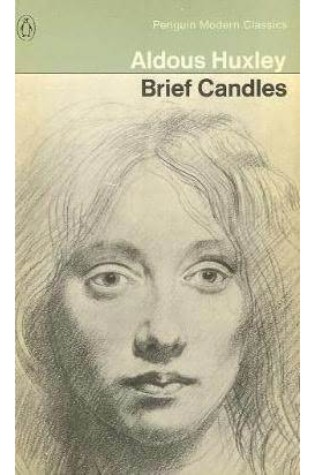 Review Website Ranks:
Review Website Ranks:
- Goodreads: 43
- Amazon: 40
- LibraryThing: 31
This collection of Huxley stories contains ‘After the Fireworks’ which is the length of a short novel and deals with the predicament of a well-known writer who finds himself approached as an oldish man, by an importunate female admirer who aspires at all costs to be his mistress. Three more stories – ‘Chawdron’, ‘The Rest Cure’ and ‘The Claxtons’ complete the volume.
46 ) The Defeat of Youth and Other Poems
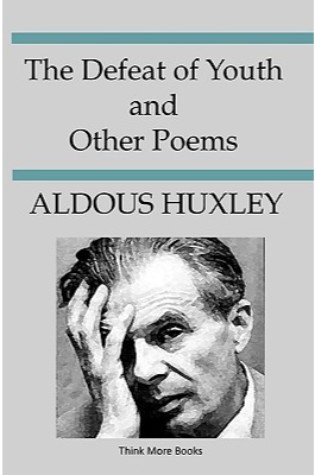 Review Website Ranks:
Review Website Ranks:
- Goodreads: 50
- Amazon: 14
- LibraryThing: 47
In this rare volume of poetry, Aldous Huxley is characteristically, uncompromisingly erudite; yet surprisingly forceful, passionate, and erotic.
46 ) Vulgarity in Literature
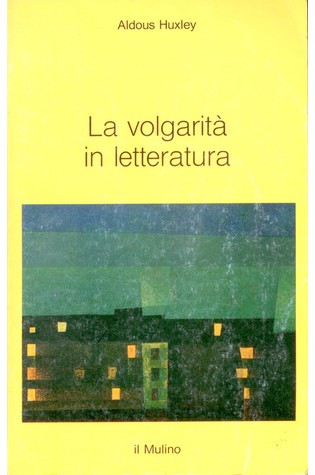 Review Website Ranks:
Review Website Ranks:
- Goodreads: 34
- Amazon: 27
- LibraryThing: 50
44 ) Collected Poems
Review Website Ranks:
- Goodreads: 27
- Amazon: 47
- LibraryThing: 34
44 ) Words and their Meanings
Review Website Ranks:
- Goodreads: 11
- Amazon: 47
- LibraryThing: 50
A great deal of attention has been paid . . . to the technical languages in which men of science do their specialized thinking . . . . But the colloquial usages of everyday speech, the literary and philosophical dialects in which men do their thinking about the problems of morals, politics, religion and psychology — these have been strangely neglected. We talk about “mere matters of words” in a tone which implies that we regard words as things beneath the notice of a serious-minded person. This is a most unfortunate attitude. For the fact is that words play an enormous part in our lives and are therefore deserving of the closest study. The old idea that words possess magical powers is false; but its falsity is the distortion of a very important truth. Words do have a magical effect — but not in the way that magicians supposed, and not on the objects they were trying to influence. Words are magical in the way they affect the minds of those who use them. “A mere matter of words,” we say contemptuously, forgetting that words have power to mold men’s thinking, to canalize their feeling, to direct their willing and acting. Conduct and character are largely determined by the nature of the words we currently use to discuss ourselves and the world around us.
43 ) Along The Road: Notes and essays of a tourist
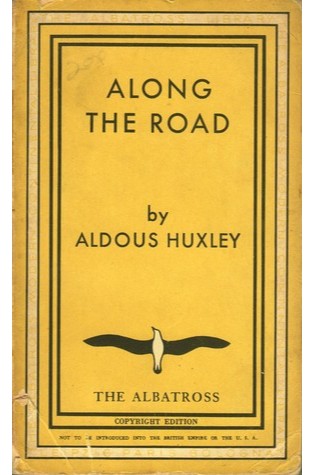 Review Website Ranks:
Review Website Ranks:
- Goodreads: 46
- Amazon: 45
- LibraryThing: 16
42 ) Jonah
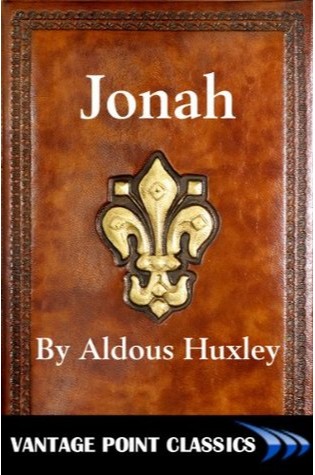 Review Website Ranks:
Review Website Ranks:
- Goodreads: 55
- Amazon: 1
- LibraryThing: 50
41 ) Ape and Essence
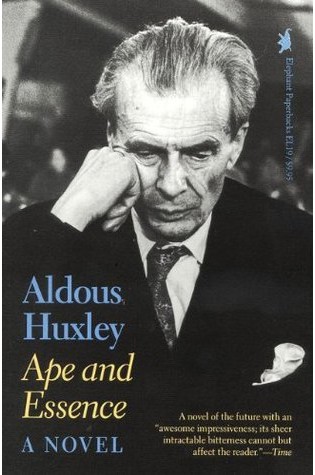 Review Website Ranks:
Review Website Ranks:
- Goodreads: 32
- Amazon: 36
- LibraryThing: 36
In February 2108, the New Zealand Rediscovery Expedition reaches California at last. It is over a century since the world was devastated by nuclear war, but the blight of radioactivity and disease still gnaws away at the survivors. The expedition expects to find physical destruction but they are quite unprepared for the moral degradation they meet. Ape and Essence is Huxley’s vision of the ruin of humanity, told with all his knowledge and imaginative genius.
39 ) Little Mexican (US title: Young Archimedes)
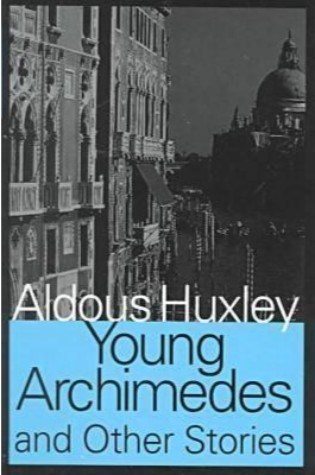 Review Website Ranks:
Review Website Ranks:
- Goodreads: 36
- Amazon: 47
- LibraryThing: 18
In these semi-autobiographical stories, Huxley discourses on life and death, accident and necessity, natives and foreigners. “Young Archimedes” was also published as “The Little Mexican”
39 ) Two or Three Graces
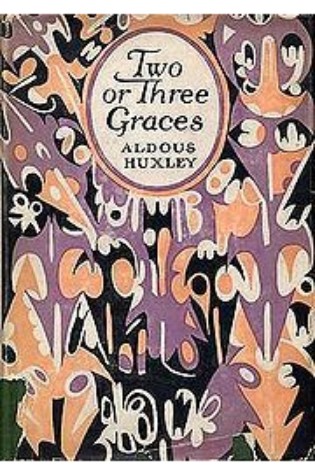 Review Website Ranks:
Review Website Ranks:
- Goodreads: 52
- Amazon: 27
- LibraryThing: 22
37 ) The Art of Seeing (exploration of Bates method of vision improvement)
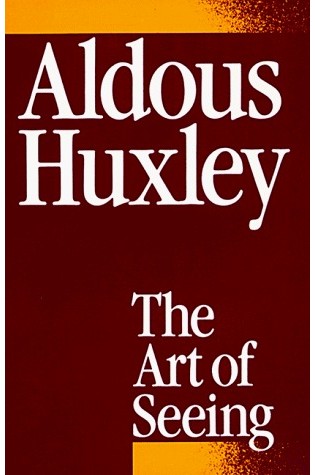 Review Website Ranks:
Review Website Ranks:
- Goodreads: 36
- Amazon: 19
- LibraryThing: 45
Both a document and a handbook The Art of Seeing records Aldous Huxley’s victory over near-blindness and details the simple exercises anyone can follow to improve eyesight. Using the method devised by Dr. William H. Bates, “the pioneer of visual education,” as Huxley called him, and heeding the advice of Dr. Bates’ disciple, Margaret D. Corbett, Aldous Huxley conquered a vision problem that had plagued him for more than a quarter century.
37 ) An Encyclopedia of Pacifism
Review Website Ranks:
- Goodreads: 4
- Amazon: 47
- LibraryThing: 49
36 ) After Many a Summer
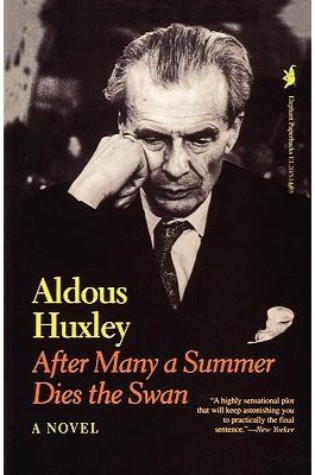 Review Website Ranks:
Review Website Ranks:
- Goodreads: 33
- Amazon: 36
- LibraryThing: 29
A Hollywood millionaire with a terror of death, whose personal physician happens to be working on a theory of longevity-these are the elements of Aldous Huxley’s caustic and entertaining satire on man’s desire to live indefinitely. With his customary wit and intellectual sophistication, Huxley pursues his characters in their quest for the eternal, finishing on a note of horror.
35 ) Time Must Have a Stop
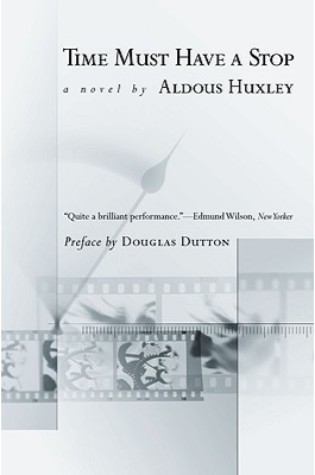 Review Website Ranks:
Review Website Ranks:
- Goodreads: 38
- Amazon: 27
- LibraryThing: 32
Sebastian Barnack, a handsome English schoolboy, goes to Italy for the summer, and there his real education begins. His teachers are two quite different men: Bruno Rontini, the saintly bookseller, who teaches him about things spiritual; and Uncle Eustace, who introduces him to life’s profane pleasures. The novel that Aldous Huxley himself thought was his most successful at “fusing idea with story,” Time Must Have a Stop is part of Huxley’s lifelong attempt to explore the dilemmas of twentieth-century man and to create characters who, though ill-equipped to solve the dilemmas, all go stumbling on in their painfully serious comedies (in this novel we have the dead atheist who returns in a seance to reveal what he has learned after death but is stuck with a second-rate medium who garbles his messages). Time Must Have a Stop is one of Huxley’s finest achievements.
34 ) Heaven and Hell
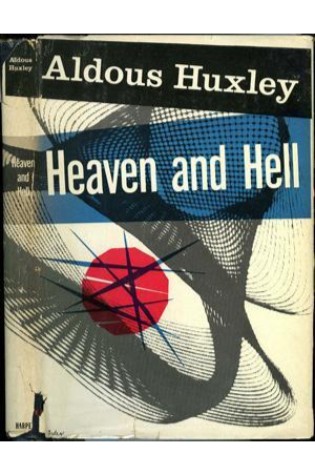 Review Website Ranks:
Review Website Ranks:
- Goodreads: 41
- Amazon: 14
- LibraryThing: 41
33 ) Adonis and the Alphabet (US title: Tomorrow and Tomorrow and Tomorrow)
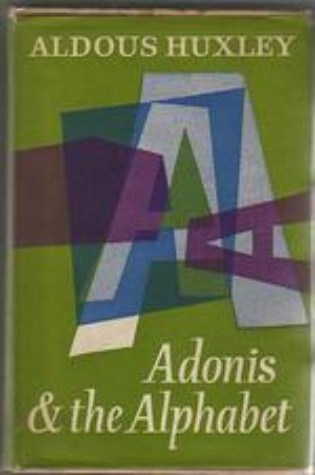 Review Website Ranks:
Review Website Ranks:
- Goodreads: 45
- Amazon: 47
- LibraryThing: 3
32 ) Those Barren Leaves
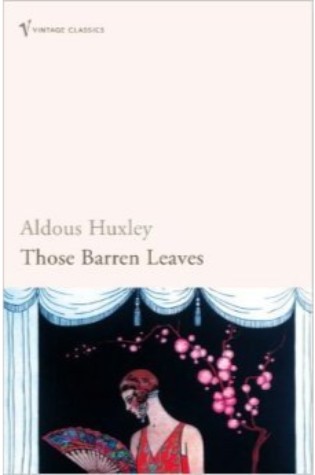 Review Website Ranks:
Review Website Ranks:
- Goodreads: 42
- Amazon: 11
- LibraryThing: 40
Aldous Huxley spares no one in his ironic, piercing portrayal of a group gathered in an Italian palace by the socially ambitious and self-professed lover of art, Mrs. Aldwinkle. Here, Mrs. Aldwinkle yearns to recapture the glories of the Italian Renaissance, but her guests ultimately fail to fulfill her naive expectations. Among her entourage are: a suffering poet and reluctant editor of the “Rabbit Fanciers’ Gazette” who silently bears the widowed Mrs. Aldwinkle’s desperate advances; a popular novelist who records every detail of her affair with another guest, the amorous Calamy, for future literary endeavors; and an aging sensualist philosopher who pursues a wealthy yet mentally-disabled heiress. Stripping the houseguests of their pretensions, Huxley reveals the superficiality of the cultural elite. Deliciously satirical, Those Barren Leaves bites the hands of those who dare to posture or feign sophistication and is as comically fresh today as when first published.
31 ) Selected Letters
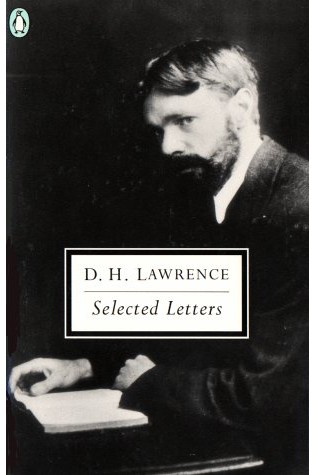 Review Website Ranks:
Review Website Ranks:
- Goodreads: 15
- Amazon: 27
- LibraryThing: 50
30 ) The Crows of Pearblossom
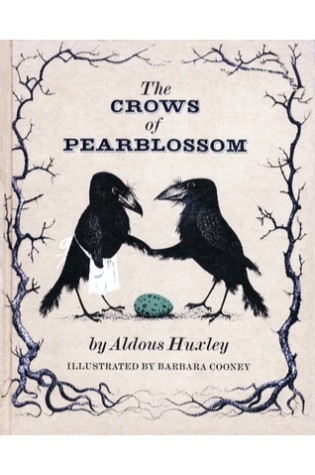 Review Website Ranks:
Review Website Ranks:
- Goodreads: 35
- Amazon: 20
- LibraryThing: 36
Written in 1944 by Aldous Huxley as a Christmas gift for his niece, The Crows of Pearblossom tells the story of Mr. and Mrs. Crow, who live in a cottonwood tree. The hungry Rattlesnake that lives at the bottom of the tree has a nasty habit of stealing Mrs. Crow’s eggs before they can hatch, so Mr. Crow and his wise friend, Old Man Owl, devise a sneaky plan to trick him. This funny story of cleverness triumphing over greed, similar in tone and wit to the work of A. A. Milne, shows a new side of a great writer. Paired with stunning illustrations by Sophie Blackall, this timeless tale is sure to grab the attention of many readers—adults and children alike.
28 ) Leda
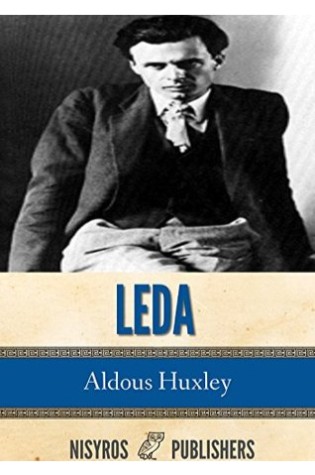 Review Website Ranks:
Review Website Ranks:
- Goodreads: 54
- Amazon: 27
- LibraryThing: 9
28 ) Texts and Pretexts
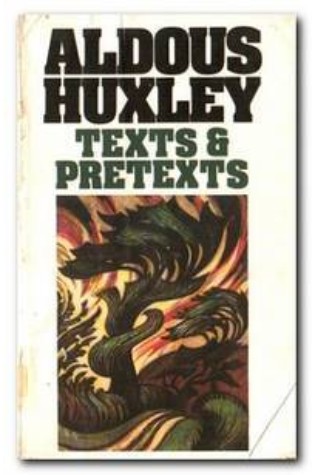 Review Website Ranks:
Review Website Ranks:
- Goodreads: 25
- Amazon: 47
- LibraryThing: 18
One of the most original and lively writers of the twentieth century, Aldous Huxley achieved worldwide fame with his novels, essays and short stories. In his introduction to Texts and Pretexts, he wrote, ‘It would have been better, I repeat, to write it all oneself – a new Divine Comedy; and, if I had the abilities of Dante, I should certainly undertake the task. But… I must content myself with picking up these broken and half-forgotten fragments from the past and fitting them, one here, another there, into their appropriate places in the jumbled mosaic of contemporary experience.’ Binding together this personal selection of poetry (and a sprinkling of prose) are Huxley’s own illuminating commentaries.
27 ) Limbo
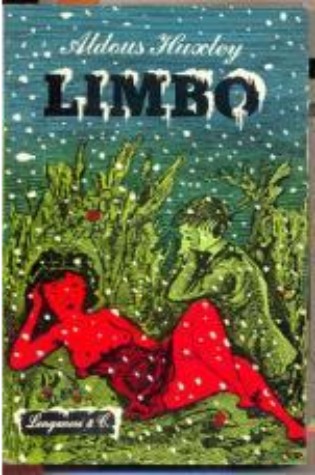 Review Website Ranks:
Review Website Ranks:
- Goodreads: 40
- Amazon: 11
- LibraryThing: 38
26 ) Eyeless in Gaza
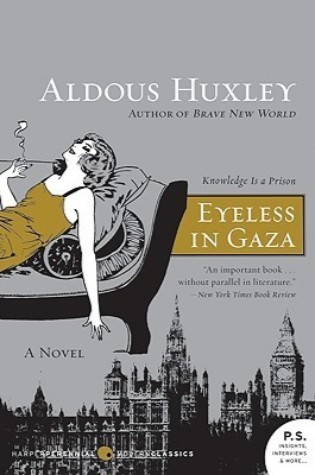 Review Website Ranks:
Review Website Ranks:
- Goodreads: 21
- Amazon: 40
- LibraryThing: 27
Written at the height of his powers immediately after Brave New World, Aldous Huxley’s highly acclaimed Eyeless in Gaza is his most personal novel. Huxley’s bold, nontraditional narrative tells the loosely autobiographical story of Anthony Beavis, a cynical libertine Oxford graduate who comes of age in the vacuum left by World War I. Unfulfilled by his life, loves, and adventures, Anthony is persuaded by a charismatic friend to become a Marxist and take up arms with Mexican revolutionaries. But when their disastrous embrace of violence nearly kills them, Anthony is left shattered—and is forced to find an alternative to the moral disillusionment of the modern world.
25 ) The Genius and the Goddess
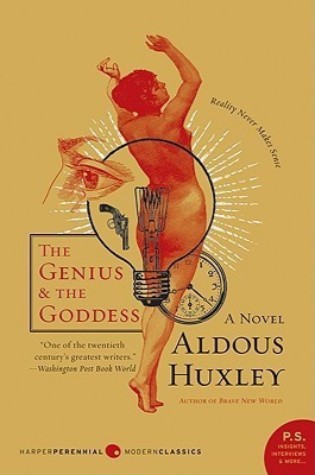 Review Website Ranks:
Review Website Ranks:
- Goodreads: 30
- Amazon: 20
- LibraryThing: 33
Thirty years ago, ecstasy and torment took hold of John Rivers, shocking him out of “half-baked imbecility into something more nearly resembling the human form.” He had an affair with the wife of his mentor, Henry Maartens–a pathbreaking physicist, winner of the Nobel Prize, and a figure of blinding brilliance–bringing the couple to ruin. Now, on Christmas Eve while a small grandson sleeps upstairs, John Rivers is moved to set the record straight about the great man and the radiant, elemental creature he married, who viewed the renowned genius through undazzled eyes.
24 ) Themes and Variations
Review Website Ranks:
- Goodreads: 19
- Amazon: 27
- LibraryThing: 34
Variations on a philosopher. Art and religion. Variations on a baroque tomb. Variations on El Greco. Variations on The prisons. Variations on Goya. The double crisis.
23 ) Selected Poems
Review Website Ranks:
- Goodreads: 27
- Amazon: 1
- LibraryThing: 50
22 ) Point Counter Point
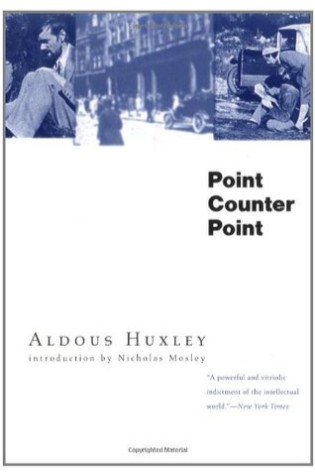 Review Website Ranks:
Review Website Ranks:
- Goodreads: 26
- Amazon: 26
- LibraryThing: 25
Aldous Huxley’s lifelong concern with the dichotomy between passion and reason finds its fullest expression both thematically and formally in his masterpiece Point Counter Point. By presenting a vision of life in which diverse aspects of experience are observed simultaneously, Huxley characterizes the symptoms of “the disease of the modern man” in the manner of a composer–themes and characters are repeated, altered slightly, and played off one another in a tone that is at once critical and sympathetic.
21 ) Do What You Will
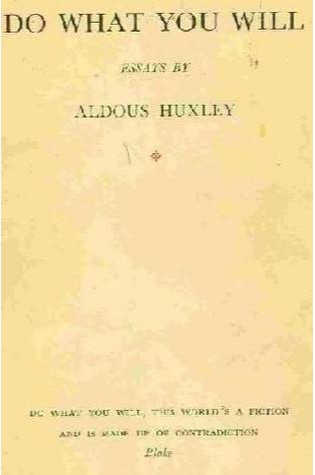 Review Website Ranks:
Review Website Ranks:
- Goodreads: 5
- Amazon: 47
- LibraryThing: 22
20 ) Brave New World Revisited
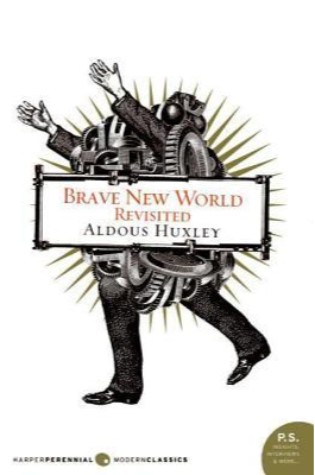 Review Website Ranks:
Review Website Ranks:
- Goodreads: 16
- Amazon: 20
- LibraryThing: 30
When the novel Brave New World first appeared in 1932, its shocking analysis of a scientific dictatorship seemed a projection into the remote future. Here, in one of the most important and fascinating books of his career, Aldous Huxley uses his tremendous knowledge of human relations to compare the modern-day world with his prophetic fantasy. He scrutinizes threats to humanity, such as overpopulation, propaganda, and chemical persuasion, and explains why we have found it virtually impossible to avoid them. Brave New World Revisited is a trenchant plea that humankind should educate itself for freedom before it is too late. Brave New World Revisted (first published in 1958) is not a reissue or revision of 0060850523 Brave New World. Brave New World is a novel, whereas Brave New World Revisted is a nonfiction exploration of the themes in Brave New World.
19 ) Island
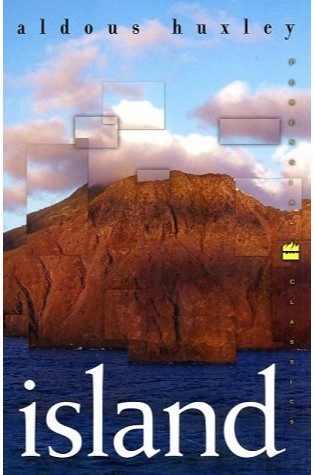 Review Website Ranks:
Review Website Ranks:
- Goodreads: 24
- Amazon: 20
- LibraryThing: 21
In Island, his last novel, Huxley transports us to a Pacific island where, for 120 years, an ideal society has flourished. Inevitably, this island of bliss attracts the envy and enmity of the surrounding world. A conspiracy is underway to take over Pala, and events begin to move when an agent of the conspirators, a newspaperman named Faranby, is shipwrecked there. What Faranby doesn’t expect is how his time with the people of Pala will revolutionize all his values and—to his amazement—give him hope.
18 ) The Doors of Perception
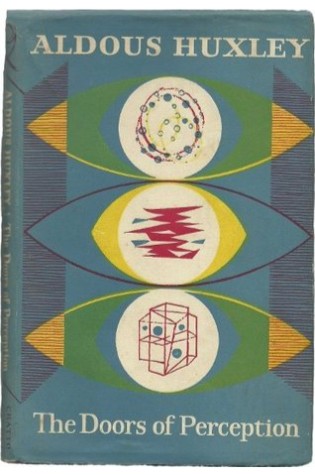 Review Website Ranks:
Review Website Ranks:
- Goodreads: 18
- Amazon: 20
- LibraryThing: 26
The Doors of Perception is a philosophical essay, released as a book, by Aldous Huxley. First published in 1954, it details his experiences when taking mescaline. The book takes the form of Huxley’s recollection of a mescaline trip that took place over the course of an afternoon in May 1953. The book takes its title from a phrase in William Blake’s 1793 poem ‘The Marriage of Heaven and Hell’. Huxley recalls the insights he experienced, which range from the “purely aesthetic” to “sacramental vision”. He also incorporates later reflections on the experience and its meaning for art and religion.
17 ) Literature and Science
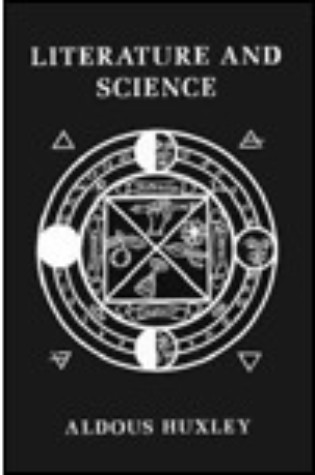 Review Website Ranks:
Review Website Ranks:
- Goodreads: 39
- Amazon: 1
- LibraryThing: 22
This is a book about one of the most important problems of our time—the problem of How to Make the Best of Both Worlds, the world of science on the one hand and, on the other, the world of total human experience, public and subjective, individual and cultural. This world of total human experience is the world that is (or at least ought to be) reflected and molded by the arts, above all by the art of literature. “What is the function of literature,” Mr. Huxley asks, “what its psychology, what the nature of literary language? And how do its function, psychology and language differ from those of science? What in the past has been the relationship between literature and science? What is it now? What might it be in the future? And what would it be profitable, artistically speaking, for a twentieth-century man of letters to do about twentieth-century science?” Ours is the Age of Science; but from a study of the best contemporary literature one would find it difficult to infer this most obvious of facts. Contemporary poetry, drama and fiction contain remarkably few references to contemporary science—few references even to the metaphysical and ethical problems which contemporary science has raised. That this state of affairs should somehow be remedied is the theme of every recent discussion of “the Two Cultures.” unfortunately most of these discussions have been carried on in abstract terms and with almost no citations of case histories, no references to the concrete problems of literary and scientific writing, no illustrative examples. Mr. Huxley has approached the subject in a different way. He deals with specific questions in the fields of immediate experience, of conceptualization, of philosophical interpretation and of verbal expression; and he illustrates these wide-ranging themes with copious quotations, drawn from a great variety of sources. He analyzes the nature of literary language and contrasts its many-meaninged richness with the simplified and jargonized language of science. He shows how the poets of earlier centuries made use of the scientific knowledge available to them. He gives examples of the ways in which modern science has modified and added to the traditional raw materials of literature. And he concludes with a speculative discussion of the ways in which future men of letters may work up the raw materials of brand new fact and revolutionary hypothesis provided by science, transfiguring them into a new kind of literature, capable of expression and at the same time coordinating and giving significance to the totality of an ever-widening human experience.
16 ) Science, Liberty and Peace
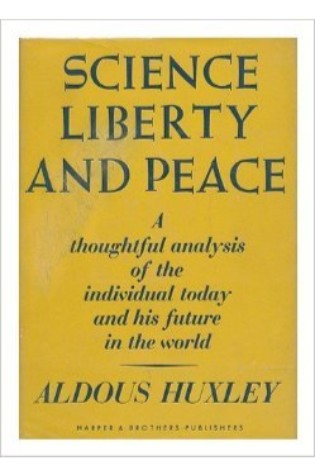 Review Website Ranks:
Review Website Ranks:
- Goodreads: 16
- Amazon: 27
- LibraryThing: 17
“If the arrangement of society is bad (as ours is), and a small number of people have power over the majority and oppress it, every victory over Nature will inevitably serve only to increase that power and that oppression. This is what is actually happening.” It is nearly half a century since Tolstoy wrote these words, and what was happening then has gone on happening ever since. Science and technology have made notable advances in the intervening years—and so has the centralization of political and economic, power, so have oligarchy and despotism.
15 ) Jesting Pilate: The Diary of a Journey
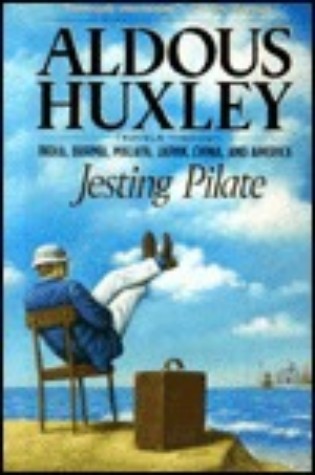 Review Website Ranks:
Review Website Ranks:
- Goodreads: 31
- Amazon: 1
- LibraryThing: 27
The author recounts his experiences traveling through six countries, and offers his observations on their people, cultures, and customs.
14 ) On the Margin
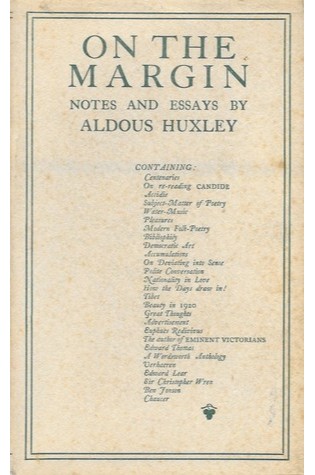 Review Website Ranks:
Review Website Ranks:
- Goodreads: 11
- Amazon: 45
- LibraryThing: 2
13 ) Brave New World
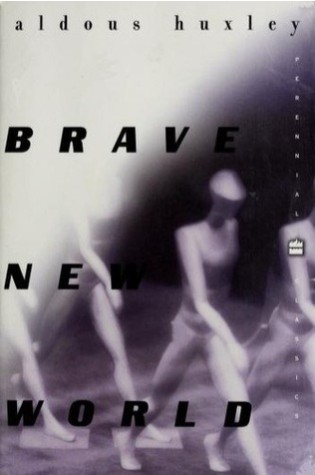 Review Website Ranks:
Review Website Ranks:
- Goodreads: 14
- Amazon: 20
- LibraryThing: 13
Brave New World is a dystopian novel written in 1931 by English author Aldous Huxley, and published in 1932. Largely set in a futuristic World State of genetically modified citizens and an intelligence-based social hierarchy, the novel anticipates huge scientific developments in reproductive technology, sleep-learning, psychological manipulation, and classical conditioning that are combined to make a utopian society that goes challenged only by a single outsider.
12 ) The Devils of Loudun
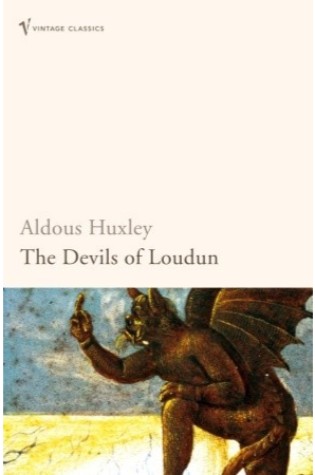 Review Website Ranks:
Review Website Ranks:
- Goodreads: 19
- Amazon: 14
- LibraryThing: 13
In 1634 Urbain Grandier, a handsome and dissolute priest of the parish of Loudun was tried, tortured and burnt at the stake. He had been found guilty of conspiring with the devil to seduce an entire convent of nuns in what was the most sensational case of mass possession and sexual hysteria in history. Grandier maintained his innocence to the end and four years after his death the nuns were still being subjected to exorcisms to free them from their demonic bondage. Huxley’s vivid account of this bizarre tale of religious and sexual obsession transforms our understanding of the medieval world.
11 ) Collected Essays
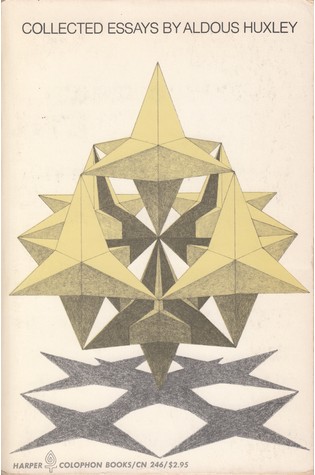 Review Website Ranks:
Review Website Ranks:
- Goodreads: 10
- Amazon: 27
- LibraryThing: 5
First printing of the Harper Colophon book draws on four decades of comment & speculation in all fields of human experience, reflecting Huxley’s wide-ranging mind, keen wit & intellectual virtuosity. Essays on nature, travel, love, sex, beauty, literature, painting, music, taste, style, history, politics, psychology, way of life & an Rx for Sense & Psyche.
10 ) On Art and Artists
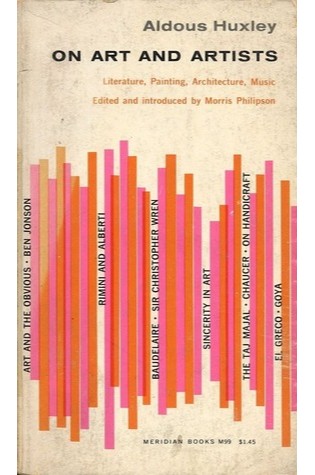 Review Website Ranks:
Review Website Ranks:
- Goodreads: 22
- Amazon: 10
- LibraryThing: 9
9 ) The Olive Tree and other essays
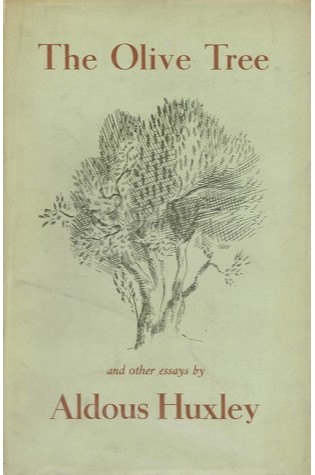 Review Website Ranks:
Review Website Ranks:
- Goodreads: 8
- Amazon: 27
- LibraryThing: 1
This is one of the best collections of essays that Mr. Huxley has ever made. The title-piece is a completely new departure in technique from anything he has written before: a meditation, darting from topic to topic, on the olive tree, and the associations which it has for the author. His now famous Introduction to the letters of D.H. Lawrence is included; there is an essay entitled ‘Justifications’ which gives comic instances of the rationalisation of irrational impulses, and analyses the mechanism of justification; there is an essay on Thomas Henry Huxley as a literary man—and as anyone who has read the Diary of the Voyage of H.M.S. Rattlesnake can testify, the great scientist’s charm and craftsmanship were both considerable—a long essay which considers the influence of books and propaganda; an essay on ‘English Snobbery’, ‘Time and the Machine’ and other diverse subjects, all of which are treated with the wit and the learning to which Mr. Huxley has made us accustomed.
8 ) Collected Short Stories
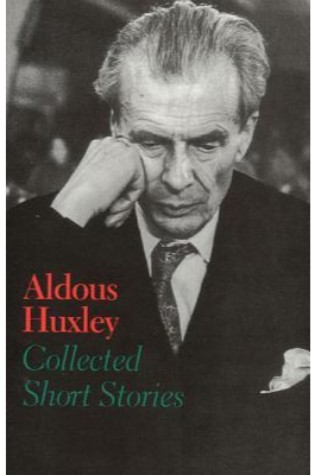 Review Website Ranks:
Review Website Ranks:
- Goodreads: 27
- Amazon: 1
- LibraryThing: 6
Aldous Huxley’s stature as one of the giants of modern English prose and of social commentary in our time is confirmed in this gathering of his distinguished stories into a single volume. Twenty-one pieces are here, including “The Gioconda Smile,” “Little Mexican,” “Young Archimedes,” and “Chawdron.” Together they offer a complete view of Huxley’s work in the genre, in which he established himself as an acknowledged master.
7 ) Moksha: Writings on Psychedelics and the Visionary Experience 1931–63
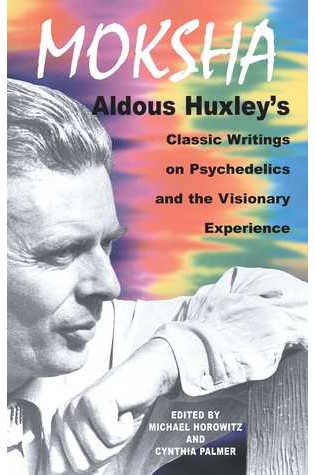 Review Website Ranks:
Review Website Ranks:
- Goodreads: 6
- Amazon: 14
- LibraryThing: 13
Selected writings from the author of Brave New World and The Doors of Perception on the role of psychedelics in society. Includes letters and lectures by Huxley never published elsewhere. In May 1953 Aldous Huxley took four-tenths of a gram of mescaline. The mystical and transcendent experience that followed set him off on an exploration that was to produce a revolutionary body of work about the inner reaches of the human mind. Huxley was decades ahead of his time in his anticipation of the dangers modern culture was creating through explosive population increase, headlong technological advance, and militant nationalism, and he saw psychedelics as the greatest means at our disposal to “remind adults that the real world is very different from the misshapen universe they have created for themselves by means of their culture-conditioned prejudices.” Much of Huxley’s writings following his 1953 mescaline experiment can be seen as his attempt to reveal the power of these substances to awaken a sense of the sacred in people living in a technological society hostile to mystical revelations. Moksha, a Sanskrit word meaning “liberation,” is a collection of the prophetic and visionary writings of Aldous Huxley. It includes selections from his acclaimed novels Brave New World and Island, both of which envision societies centered around the use of psychedelics as stabilizing forces, as well as pieces from The Doors of Perception and Heaven and Hell, his famous works on consciousness expansion.
6 ) The Perennial Philosophy
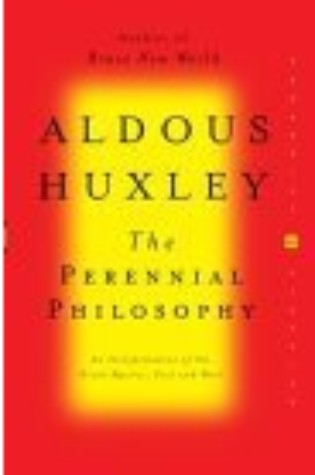 Review Website Ranks:
Review Website Ranks:
- Goodreads: 2
- Amazon: 14
- LibraryThing: 9
he Perennial Philosophy is defined by its author as “The metaphysic that recognizes a divine Reality substantial to the world of things and lives and minds.” With great wit and stunning intellect, Aldous Huxley examines the spiritual beliefs of various religious traditions and explains them in terms that are personally meaningful. An inspired gathering of religious writings that reveals the “divine reality” common to all faiths, collected by Aldous Huxley “The Perennial Philosophy,” Aldous Huxley writes, “may be found among the traditional lore of peoples in every region of the world, and in its fully developed forms it has a place in every one of the higher religions.” With great wit and stunning intellect—drawing on a diverse array of faiths, including Zen Buddhism, Hinduism, Taoism, Christian mysticism, and Islam—Huxley examines the spiritual beliefs of various religious traditions and explains how they are united by a common human yearning to experience the divine. The Perennial Philosophy includes selections from Meister Eckhart, Rumi, and Lao Tzu, as well as the Bhagavad Gita, Tibetan Book of the Dead, Diamond Sutra, and Upanishads, among many others.
5 ) The Human Situation: Lectures at Santa Barbara, 1959
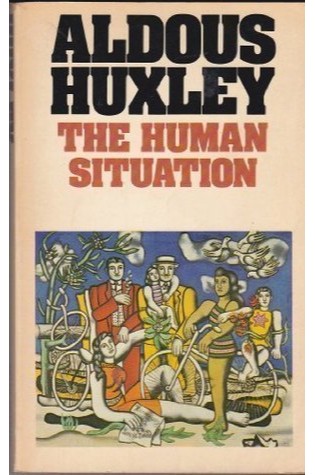 Review Website Ranks:
Review Website Ranks:
- Goodreads: 7
- Amazon: 11
- LibraryThing: 6
4 ) Grey Eminence
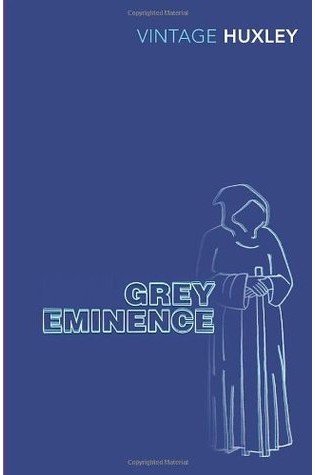 Review Website Ranks:
Review Website Ranks:
- Goodreads: 3
- Amazon: 1
- LibraryThing: 18
A Biographical Account of Religion & Politics in Cardinal Richelieu’s France Aldous Huxley On the Road to Rome Childhood & Youth The Religious Background The Evangelist The Approach to Politics The Two Collaborators La Rochelle
3 ) Music at Night
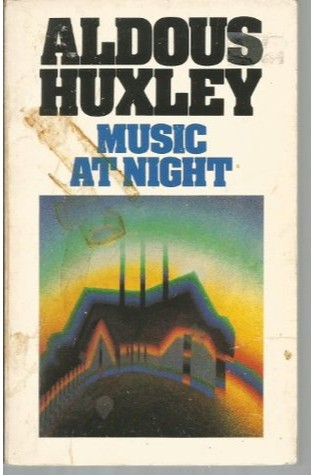 Review Website Ranks:
Review Website Ranks:
- Goodreads: 11
- Amazon: 1
- LibraryThing: 8
2 ) Proper Studies
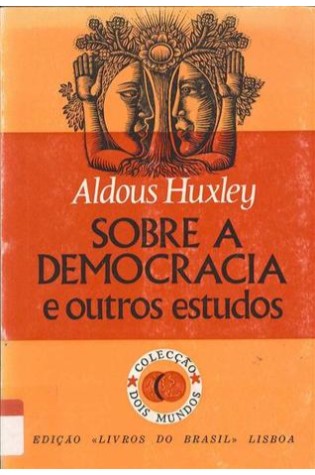 Review Website Ranks:
Review Website Ranks:
- Goodreads: 9
- Amazon: 1
- LibraryThing: 9
1 ) Ends and Means
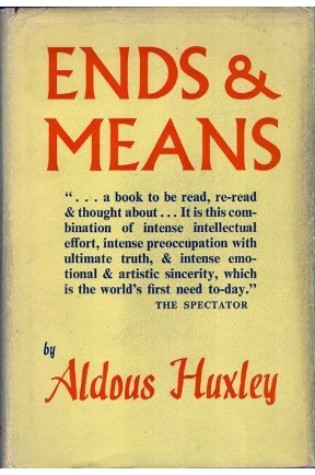 Review Website Ranks:
Review Website Ranks:
- Goodreads: 1
- Amazon: 1
- LibraryThing: 4
An Inquiry into the Nature of Ideals & into the Methods Employed for Their Realization Goals, roads & contemporary starting point The nature of explanation Efficacy & limitations of large-scale social reform Social reform & violence The planned society Nature of the modern state Centralization & decentralization Decentralization & self-government War Individual work for reform Inequality Education Religious practices Beliefs Ethics
